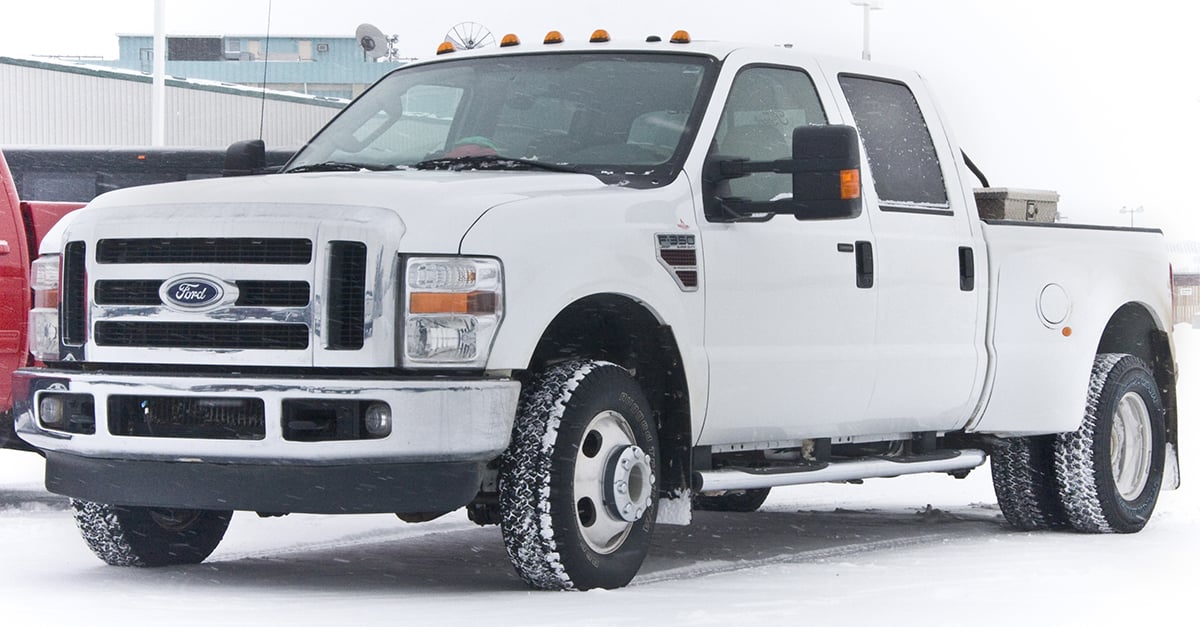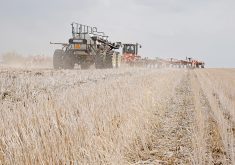Vehicles are an integral part of any farm operation and contribute significantly to the overall efficiency of the agricultural process.
As important assets, it is important to understand how vehicles are classified and dealt with for tax purposes.
The following criteria outline the vehicle classifications to consider when buying a vehicle for the farm:
Read Also

Invigor Gold variety viewed as threat to condiment mustard
Invigor Gold, the canola-quality mustard developed by BASF, is on a collision course with Canada’s condiment mustard industry. It’s difficult to see how the two can co-exist.
Motor vehicle — an automotive vehicle designed for highway and street use.
Passenger vehicle — a motor vehicle designed to carry people on highways and streets.
Other factors, such as seating capacity and percentage of total kilometres driven for business purposes, determine whether your vehicle should be considered a motor vehicle or passenger vehicle.
For instance, pick-up trucks used to transport goods or equipment and used for business purposes for at least 50 per cent of the kilometres driven are considered motor vehicles. If the pick-up truck has an extended cab and is used for business purposes for at least 90 per cent of the kilometres driven, it is also considered a motor vehicle.
Pick-up trucks that do not meet the criteria for use and business kilometres driven are usually considered passenger vehicles.
Once you have determined the vehicle classification, you will have to determine the depreciable property class as set out by the Income Tax Act. These rules will provide the capital cost allowance (CCA) you can deduct against your farming income for the tax year.
The act has established two classes for vehicles: Class 10 and Class 10.1. Both have a capital cost allowance rate of 30 per cent.
Class 10 is for motor and some passenger vehicles that do not meet the conditions of Class 10.1. Class 10 also includes vehicles such as tractors and trailers.
Class 10.1 is for passenger vehicles that meet certain criteria based on the cost of the vehicle before adding sales tax. Passenger vehicles are subject to limits on the amount of depreciation, interest and leasing costs deducted.
The CCA limits for Class 10.1, based on year of purchase:
2021 and earlier — $30,000
2022 — $34,000
2023 — $36,000
For example, a pick-up truck that was purchased in 2023 for $36,750, including GST, and is used 45 per cent for business purposes, would fit the criteria for a passenger vehicle. Since the cost of the vehicle is below the $36,000 threshold (cost before GST was $35,000) the full amount can be depreciated.
In Class 10.1, a vehicle’s CCA can only be deducted up to the capital cost limit ($36,000 for 2023), compared to Class 10 in which the entire cost can be depreciated over time.
One more consideration when buying new vehicles is the luxury tax. Since 2022, there is a luxury tax on certain vehicles that are sold or imported with a price above $100,000. This tax is calculated as the lesser of 10 per cent of the total taxable amount or 20 per cent of the amount above the price threshold of $100,000.
GST will be calculated on the total value of the car and the luxury tax. For instance, a vehicle worth $110,000 will face a luxury tax of $2,000 (20 per cent of $10,000) and the GST will be calculated on $112,000 ($110,000 vehicle plus the $2,000 luxury tax).
It is crucial for farmers to be aware and stay informed about evolving vehicle tax regulations to make strategic decisions and ensure compliance. If ever in doubt, contact your trusted tax professional to ensure your assets are appropriately classified.
Colin Miller is a chartered accountant and partner with KPMG’s tax practice in Lethbridge. Contact: colinmiller@kpmg.ca.















